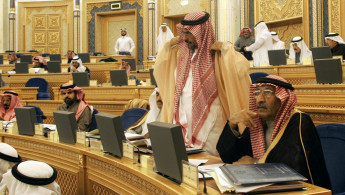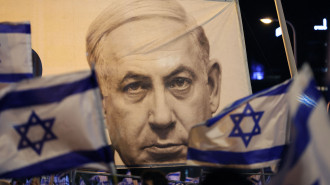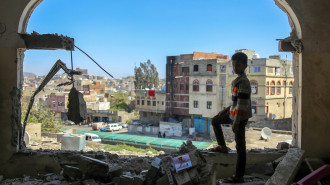Shaking up the sheikhs
King Salman has taken little time to stamp his authority on Saudi Arabia. His sweeping changes to government come only a week after the death of his predecessor, Abdullah, and two months after the formation of the last administration.
Salman has sent a clear message that he is not attached to the old era - removing the sons of Abdullah, or the heads of ministries and sectors there by his grace.
Only one of three of Abdullah's sons now remain in official office: Mutaib bin Abdullah, the minister for the National Guard, who commands much loyalty from the military.
Bandar bin Sultan, a powerful figure in the kingdom for years, was dropped as head of the national security agency. Bandar, who served 22 years as ambassador to the US before leading the security body, is widely believed to have shaped Saudi policy on the war in Syria, Egypt and relations with members of the Gulf Cooperation Council.
Abdullah's spy chief, Khalid bin Bandar, was also removed - suggesting Salman's purge was partly based on dissatisfaction with security policy under Abdullah.
Religious recidivism?
Worryingly for religious progressives, Salman sacked three figures considered to be among the most enlightened in ultra-conservative Saudi Arabia. They are:
* Mohammed al-Issa, who as justice minister was credited driving through deals to appoint the first woman as deputy to the education minister, install a quota policy for women in the Shura Council, and allowing women to take part in municipal elections as candidates and voters.
* Abdullatif Al al-Sheikh, who as head the anti-vice police. He was known as the leader of a rebellion against a number of the ultraorthodox old guard members who sought to restrict already limited social freedoms. Religious police patrols were restricted at markets and festivals under his watch.
* Sulaiman Aba al-Khail, who had only been minister of religious endowments and Islamic affairs for 50 days.
Indeed, some of the king's replacements also suggest a return to older eras.
| Salman sacked three figures considered to be among the most enlightened in ultra-conservative Saudi Arabia. |
Salman reinstated Saleh Al al-Sheikh, who was relieved of his post by his brother, as minister of religious endowments and Islamic affairs.
Saleh is a descendant of Mohammed Ibn Abdul-Wahhab, the religious partner in the establishment of the Saudi state.
Salman selected Abdullatif Al al-Sheikh, a member of the same family, as minister of municipal and rural affairs.
The son of King Faisal meanwhile has been promoted to royal special adviser and reinstated to his old post as governor of the Mecca Region after he had been marginalised under Abdullah.
And the information ministry has been brought under the direct control of the king by the appointment as information minister Adel al-Tarifi, the director of al-Arabiya TV. The king is a shareholder in the channel and the MBC group.



